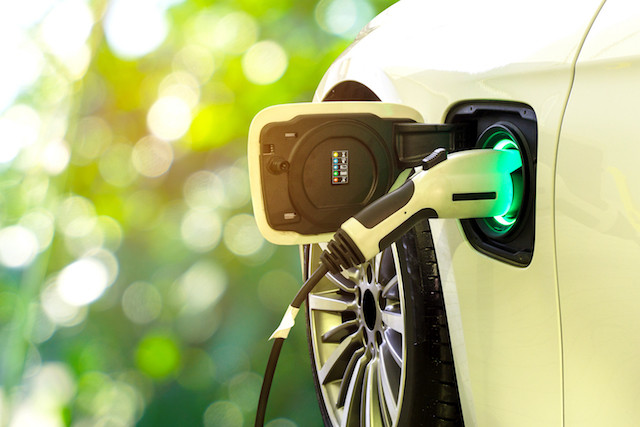The chargers at a motorway service station outside Paris are one of 80 European locations the Anglo Dutch firm is planning for swift charging by 2020, including as many as eight in the UK.
The new points can add 150km of range to a car’s battery in five minutes, or fully recharge the latest models entirely in about ten minutes, three times faster than the best chargers available today.
Porsche’s Taycan is expected to be one of the first models capable of taking advantage of the faster charging speeds when it goes on sale in 2019, cutting the time required for recharging closer to that of refuelling.
Current electric vehicles will be able to use the chargers at a slower rate.
Shell promotional video
Oil companies have shown an increasingly appetite to move into the electric car market. Shell has also bought the Dutch charging firm New Motion, BP bought the UK’s biggest network for £130m and on Thursday the French firm Total went into partnership with the US company ChargePoint to sell chargers to UK businesses.
David Bunch, the vice-president of retail at Shell Europe, said: “One in 12 new cars in the UK is an electric vehicle and one in 10 in the Netherlands … From our perspective, it is planning a little bit for the future. But the pace of acceleration is such that it’s prudent to do so and we see great value in that.”
Next Green Car, a guide to electric and low-emission cars, said the new infrastructure would be of most help to buyers of a new generation of vehicles that can handle more powerful technology, manufactured by companies such as Jaguar and Audi.
Melanie Shufflebotham of Next Green Car said: “Initially they will be a welcome addition … looking forward, they will be a key part of the infrastructure.”
Most electric cars to date have been capable of handling 43 kilowatt (kW) or 50kW chargers, with the exception of Tesla’s models which can be powered off its 120kW network. New models by other manufacturers increasingly have the capability to handle 100kW.
The Shell chargers are some of the first segments of the wider European network Ionity, which is built with 350kW points and is designed to make it easier to undertake long distance journeys in electric cars. Michael Hajesch, Ionity’s chief executive, said the company had secured around 75% of the planned sites in its network.
National Grid, the operator of the UK’s national electricity transmission network, is also in talks with car companies to build a network of around 50 charging hubs using 350kW chargers.
Adam Vaughan
